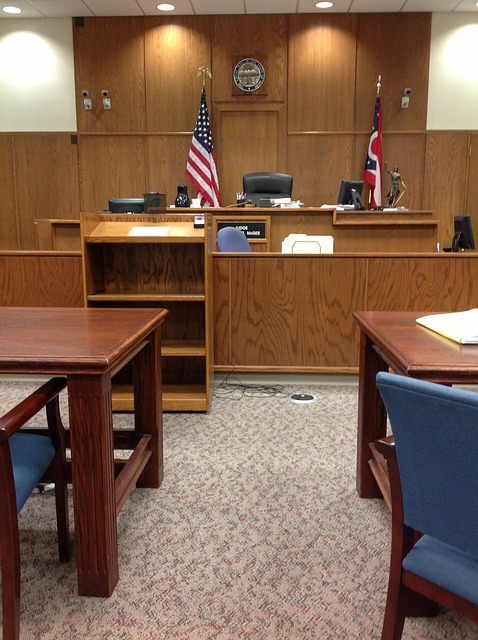Plea bargaining provides a strategic route for defendants facing public corruption charges, balancing benefits like reduced punishment and trial stress against drawbacks such as waiving appeal rights and community stigma. Weighing these pros and cons is vital to making informed decisions tailored to individual interests.
Public corruption charges are a serious matter, with far-reaching consequences for those involved. This article delves into the intricate world of public corruption accusations, offering insights into a pivotal legal strategy: plea bargaining. We explore the advantages and disadvantages of negotiated pleas from the defendant’s perspective, providing a balanced view. Understanding both the pros and cons of plea bargaining is crucial for those navigating these complex legal proceedings, ensuring informed decisions in their defense strategies.
- Understanding Public Corruption Charges
- Plea Bargaining: A Strategic Option
- Pros of Negotiated Pleas for Defendants
- Cons and Risks of Plea Bargaining
Understanding Public Corruption Charges

Public Corruption Charges can be complex and multifaceted, often involving allegations of misuse of power, bribery, or abuse of public funds. Understanding these charges is crucial for anyone facing such accusations. When a defendant is charged with public corruption, one common strategy employed by legal teams is Plea Bargaining. This process involves negotiating a plea agreement with the prosecution, where the defendant agrees to plead guilty to a lesser charge in exchange for a reduced sentence or other benefits.
Plea bargaining can be a double-edged sword for defendants; it offers potential pros like avoiding trial and its associated stress, as well as potentially achieving extraordinary results through reduced charges or sentences. However, there are also cons, such as giving up the right to a jury trial, accepting guilt, and facing stigma within their community. For his clients, balancing these considerations is key to making an informed decision that best serves their interests in navigating public corruption charges.
Plea Bargaining: A Strategic Option

Plea bargaining is a strategic option that defendants often consider when facing public corruption charges. This process involves negotiating a plea agreement with prosecutors, where the defendant pleads guilty to a lesser charge or accepts a reduced sentence in exchange for providing substantial assistance in the investigation or prosecution of others involved in corrupt activities. While plea bargaining can be a complex decision, it offers several advantages and disadvantages for defendants.
On the pros side, plea bargaining allows individuals to avoid the stress and uncertainty of jury trials, which can be particularly beneficial when facing severe charges with significant penalties. It also provides an opportunity to achieve extraordinary results by potentially reducing the overall sentence or avoiding incarceration altogether, especially if the defendant’s cooperation is valuable to authorities. However, there are cons as well; accepting a plea deal may result in stigma and public shame, and once entered, the agreement is final, precluding any chance of clearing one’s name through subsequent appeals or new evidence. Moreover, defendants must weigh these factors against the potential risks and benefits of going to trial, considering all stages of the investigative and enforcement process.
Pros of Negotiated Pleas for Defendants

Plea bargaining, or negotiation between prosecutors and defendants, offers several advantages for individuals facing public corruption charges. For his clients, this strategy can be a powerful tool in navigating complex legal landscapes. By engaging in plea negotiations, lawyers can secure more favorable outcomes than might be achieved through a full trial. This process allows for a structured resolution, where the defendant agrees to plead guilty or no contest in exchange for reduced charges or a lesser sentence.
Such agreements provide a measure of predictability and control over the eventual punishment. This is particularly beneficial in public corruption cases, which often involve intricate investigations and multiple agencies. Plea bargaining also facilitates a more efficient justice system by streamlining all stages of the investigative and enforcement process. It enables defendants to avoid the time-consuming and costly battles that trials can become, potentially leading to winning challenging defense verdicts without prolonged legal procedures.
Cons and Risks of Plea Bargaining

Plea bargaining is a strategic process where defendants agree to plead guilty to a lesser charge in exchange for reduced sentencing from prosecutors. While it may seem like an attractive option for individuals facing severe legal repercussions, there are several cons and risks associated with this practice. One significant drawback is that a plea bargain often waives the defendant’s right to appeal their sentence, limiting their ability to challenge the terms later on. This can be especially problematic if new evidence emerges or if the defendant feels they were unjustly punished.
Moreover, plea bargaining can impact a person’s future prospects, as it may affect their ability to access certain professions or participate in community service initiatives, which are crucial for rehabilitation and reintegration into society. In the context of political and philanthropic communities, where reputation and integrity are highly valued, a plea bargain could stigmatize an individual, hindering their capacity to contribute meaningfully in the future. Thus, while plea bargaining might offer some advantages, it is essential for defendants to carefully weigh these potential risks when making such a critical decision, especially when aiming for winning challenging defense verdicts.
Public corruption charges can be complex, but understanding the potential outcomes, including plea bargaining, is crucial. This strategy offers both advantages and disadvantages for defendants. While plea bargaining may provide a more manageable sentence and protect from harsher punishments, it also comes with risks like a permanent criminal record. Weighing these Plea Bargaining Pros and Cons for Defendants is essential in navigating the legal process and making informed decisions.






